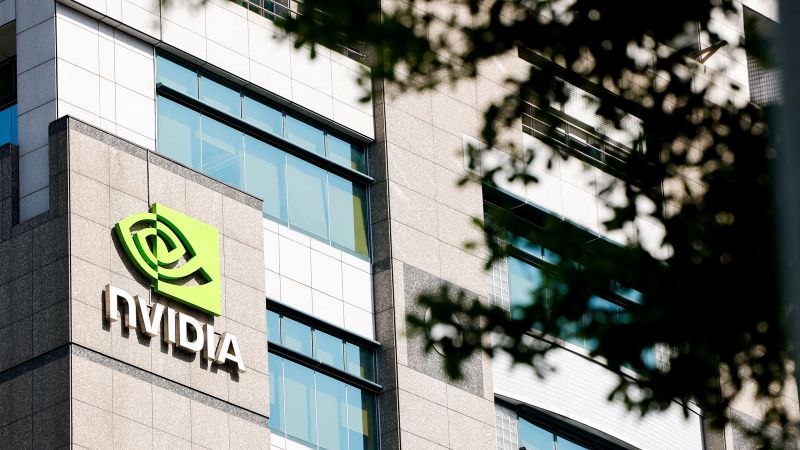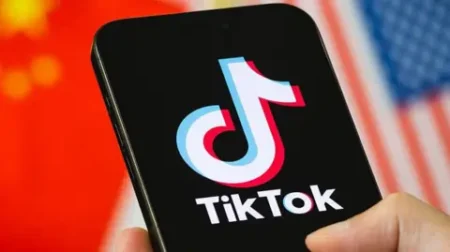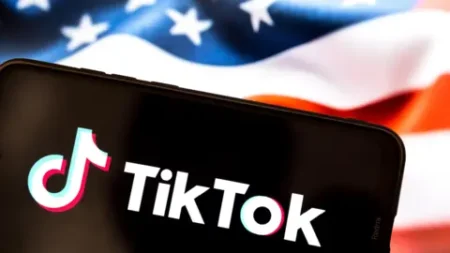Nvidia, a key player in the artificial intelligence (AI) chip market, has announced that it will incur a financial loss of approximately $5.5 billion after the U.S. government imposed new restrictions on the export of its H20 AI chips to China. This latest move reflects the escalating tensions and the strategic battle between the United States and China over AI supremacy. Following this news, Nvidia’s shares plummeted, reflecting investor concerns about the company’s financial outlook and future growth prospects.
The H20 chip, which was launched just a year ago, was specifically developed to comply with stringent U.S. export regulations. This chip had allowed Nvidia to maintain its sales in China, despite earlier prohibitions on its more advanced H100 chips. However, the introduction of the new export regulations necessitating special licenses for H20 chip sales to China, a market that accounted for 13% of Nvidia’s sales last year, signifies a major shift in the company’s operating landscape. Analysts, including Dan Ives from Wedbush Securities, noted that while the financial impact may seem small regarding Nvidia’s overall revenue, it represents a significant strategic setback that could hinder the firm’s ongoing efforts to cater to its Chinese clients.
The H20 chip has garnered attention for its role in enabling DeepSeek, a Chinese tech company, to develop a ChatGPT-like reasoning AI model known as R1. This model was reportedly created at a fraction of the cost compared to its American counterparts, igniting a wave of advancements in the Chinese AI industry. The successful development has stirred significant interest and investment within China, indicating a vibrant, rapidly evolving technology sector. The restrictions imposed by the U.S. government on the H20 chips are viewed as an effort to constrain the technological capabilities of China, especially in fields that could enhance military applications.
In a regulatory filing, Nvidia disclosed that the new licensing framework would be indefinite, leaving uncertainties about the conditions and processes for obtaining such licenses. This uncertainty has raised broader concerns about the future of U.S.-China tech relations amidst an ongoing trade conflict. Notably, the U.S. Commerce Department has been vocal about its commitment to national security, confirming that the new export licensing requirements apply not only to Nvidia’s H20 but also to similar products from other U.S. companies like AMD and its MI308 chips.
The legislation spearheaded by previous administrations reflects a growing apprehension regarding America’s competitive edge in technology, particularly concerning chips that could fortify China’s AI and military capabilities. The evolving landscape has fueled a demanding call for heightened export controls, especially since DeepSeek’s R1 AI model demonstrated the potential for advanced AI development at a significantly reduced cost. As a result, there has been a boom within China’s AI sector, drawing increased investment as tech firms strive to enhance their systems and capabilities without reliance on U.S. technology.
Furthermore, despite attempts by companies like Huawei and Cambroon to develop alternatives to Nvidia’s chips, industry experts believe these homegrown products will continue to lag behind Nvidia in performance and maturity. Brady Wang from Counterpoint Research indicated that Nvidia’s established ecosystem and superior manufacturing advantages mean that the gap between American and Chinese chip products is likely to widen further.
As tensions rise, the prospect of additional restrictions on technology transactions between the U.S. and China looms large. Analysts, including Ives, anticipate the trade war will see more significant actions from both governments. In response to U.S. policymakers’ concerns about national security, President Biden’s administration initiated limitations on the sale of advanced semiconductors to China in 2022. The restrictions have been expanded to cover more products, including chip-making equipment and high-bandwidth memory chips, with the intent to curb technological progress in China. A new global export framework that establishes different levels of restrictions based on a country’s relationship with the U.S. is anticipated to come into effect soon.
In conclusion, these escalating restrictions have attracted significant criticism from U.S.-based tech companies, which argue that such controls could impair the competitive edge of American firms in the global market. Nvidia’s vice president of government affairs, Ned Finkle, articulated concerns that the restrictions endanger global progress in AI, potentially stifling innovation and economic growth worldwide. The unfolding scenario encapsulates the intricate nexus between technological advancement, geopolitical contention, and market dynamics in the rapidly evolving landscape of AI and semiconductor manufacturing.











